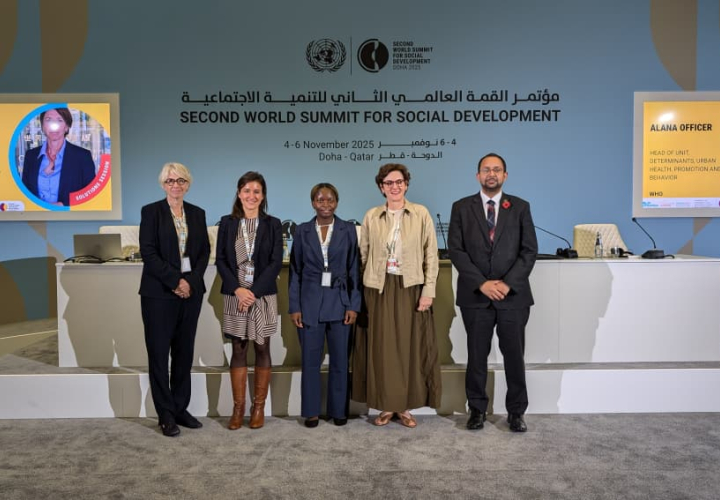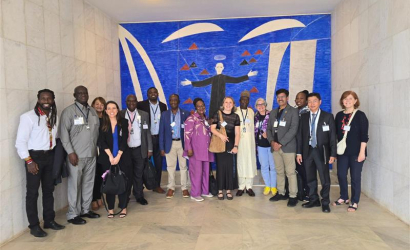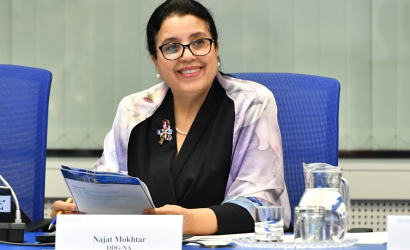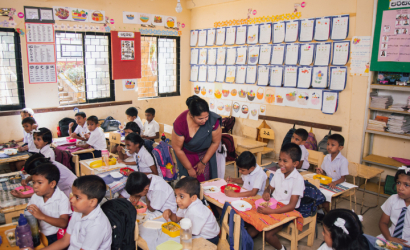From 4–6 November 2025, leaders gathered in Doha, Qatar, for the Second World Summit on Social Development (WSSD). Convened by the UN General Assembly, the Summit renewed global commitments to the Copenhagen Declaration on Social Development and the 2030 Agenda.
Nourish to Flourish
Against this backdrop, UN-Nutrition, together with the Governments of the Netherlands and Brazil, co-organised a Solutions Session titled “Nourish to Flourish: Integrating Nutrition into Development for Lasting Social Impact.” The session spotlighted practical ways and innovative models to integrate nutrition into social and economic development agendas.
Representatives from Brazil, the United Kingdom, and the Democratic Republic of the Congo (DRC) gathered to share experiences and solutions. Together, they examined how nutrition can trigger and enhance inclusive and sustainable social development – sharing lessons learned, outlining effective coordination mechanisms, and looking at whole-of-government and whole-of-society approaches as a way forward.
The discussion also explored how multisectoral collaboration – across health, education, agriculture, social protection, and environment – can advance equitable progress on nutrition and the Sustainable Development Goals, especially within the framework of the UN Decade of Action on Nutrition.
Watch: Opening remarks from Najat Mokhtar, Chair of UN-Nutrition
Voices from the dialogue
The session was co-moderated by Alexandra Newlands, Head of the Scaling Up Nutrition Civil Society Network (SUN CSN) and Nana Yohari, SUN Civil Society Network Youth Coordinator (DRC), who brought the perspectives of civil society and youth into the discussion – inviting speakers to reflect on how to meaningfully include communities and young people in multisectoral decision-making.
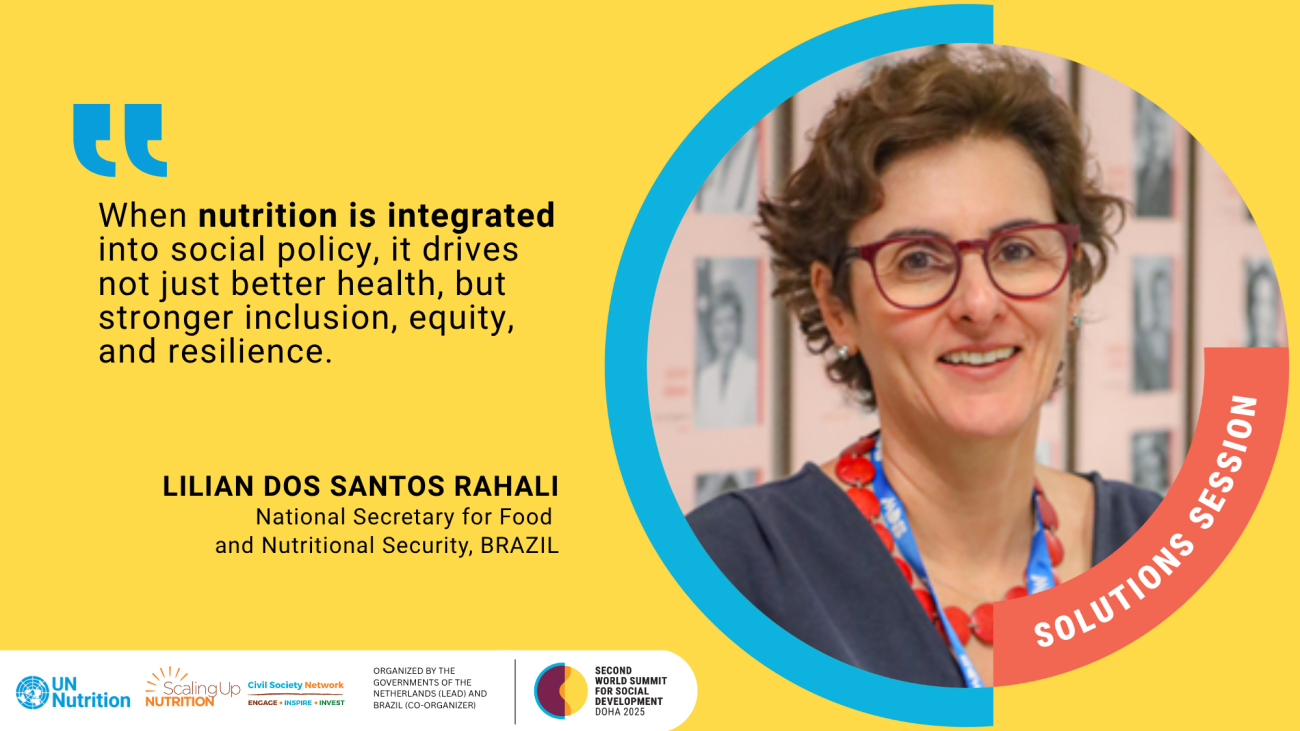
From Brazil, Lilian dos Santos Rahal, National Secretary for Food and Nutritional Security, highlighted the country’s most compelling examples of how a whole-of-government and whole-of-society approach can make food and nutrition security the foundation of inclusion and resilience. By embedding nutrition into poverty reduction, social protection, and education policies, Brazil transformed food and nutrition security from a sectoral issue into a national development priority. Programmes like Fome Zero (Zero Hunger), Bolsa Família, the National School Feeding Programme, and the Cestas Básicas (Food Baskets Initiative) worked hand in hand to ensure that every household – especially those most at risk – had consistent access to adequate and nutritious food. This integrated approach helped lift millions out of extreme poverty and malnutrition, allowing Brazil to exit the hunger map. The lesson for the Global Alliance Against Hunger and Poverty is clear: when nutrition is fully integrated into social policy, it drives not only better health, but also deeper social inclusion, equity, and resilience.

British Ambassador to Qatar H.E. Neerav Patel emphasised that nutrition is not only a health issue but a development imperative – one that requires integration across sectors to unlock lasting social impact. The UK-led Nutrition Integration Compact initiative offers a practical mechanism to strengthen multisectoral collaboration. By aligning governments and partners around a common results framework, the Compact promotes accountability and ensures that nutrition is not treated as a stand-alone agenda, but as a driver of human capital and inclusion. He underscored the power of nutrition-sensitive social protection systems, citing Zambia’s experience with cash transfers targeted to vulnerable households as a model for building resilience, improving diets, and advancing inclusive growth.
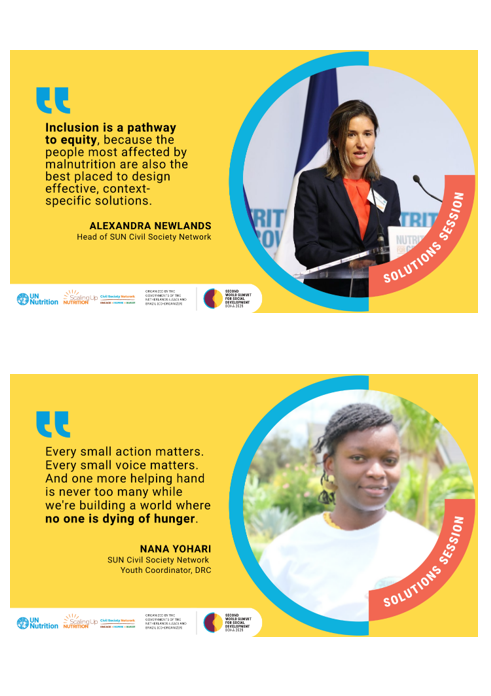
Alexandra Newlands, Head of SUN CSN highlighted that accountability and inclusion are the foundations of lasting social development. Across countries, the SUN Civil Society Network is driving accountability from the local level, engaging young people and communities to foster transparency and local ownership. For example, in Burkina Faso, civil society monitoring led to new budget lines for nutrition in 43 municipalities; in Nigeria and Madagascar, civil society and young people are driving budget advocacy to improve local nutrition services; in Liberia and Sierra Leone, women-led alliances are monitoring compliance with existing frameworks to protect infant feeding practices; in Nigeria, youth networks organised over 100 community dialogues, gathering testimonies from women, rural populations, and people with disabilities, and turned these lived experiences into concrete policy recommendations to influence state-level nutrition allocations.
“These examples show that when people participate, development becomes more inclusive – and when young people and women take the lead, nutrition becomes a shared social responsibility.”
Nana Yohari, SUN CSN Youth Coordinator, also reflected on the example of the DRC and the importance of youth participation and integrating youth-led initiatives and views into nutrition policy and decision-making. Having led silent campaigns with communities and young people herself, she reflected on the need to continue raising awareness around beliefs that didn’t lead to healthy choices and informing citizens about their rights. “Information is a strong weapon against malnutrition – when people know better, they make better choices. That’s why we must make sure that government policies on food and nutrition are fair, inclusive, and meet the needs of our communities, especially the young people. We need young people to know that eating well is not just about food but about health, intelligence, and dignity.”
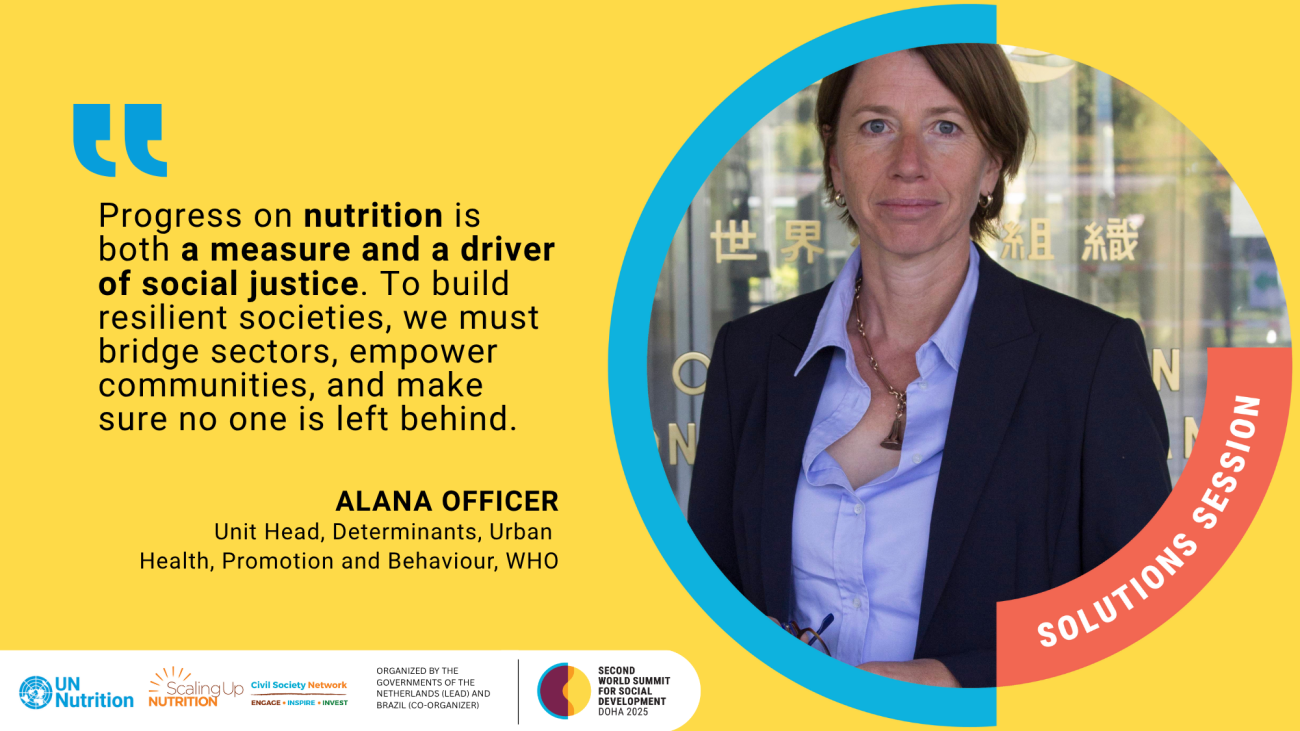
Closing the session, Dr. Alana Officer from WHO stressed that nutrition and social development are deeply linked.
Building stronger, more resilient societies means bridging sectors, empowering communities, and ensuring that no one is left behind.
She underscored that progress on nutrition is both a measure and a driver of social justice, calling on all partners to sustain the political will and investments needed to make nutritious diets accessible for all.
UN-Nutrition, representing UN agencies, continues to amplify country experiences and partnerships that put nutrition at the centre of social and economic development – ensuring UN efforts are aligned and advancing the vision of a world where everyone can nourish and flourish.
